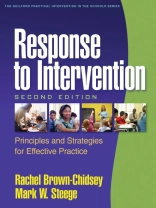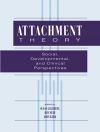This bestselling work provides practitioners with a complete guide to implementing response to intervention (RTI) in schools. The authors are leading experts who explain the main components of RTI–high-quality instruction, frequent assessment, and data-based decision making–and show how to use it to foster positive academic and behavioral outcomes for all students. Implementation procedures are described in step-by-step detail. In a large-size format with lay-flat binding to facilitate photocopying, the book includes reproducible planning and implementation worksheets. The companion website features an accompanying Power Point presentation for use in RTI training. This book is in The Guilford Practical Intervention in the Schools Series, edited by T. Chris Riley-Tillman. New to this Edition *Includes extensive new research that reflects the increasing adoption of RTI nationwide. *Expanded to include behavioral interventions. *Chapter on effective instructional practices for general education. *Chapter on implementation at the whole-school and district levels. *Chapter featuring multiple intervention case studies. See also Assessment for Intervention, Second Edition, which details a wide range of assessment procedures ideal for implementation in an RTI framework.
Innehållsförteckning
1. Introduction: What Is Response to Intervention (RTI)?2. Using Scientifically Based Instruction: NCLB, IDEA, ARRA, and RTI3. RTI and Special Education: Prospects and Possibilities4. Evidence-Based Interventions5. Single-Subject Experimental Design6. How to Teach So That Students Will Learn: Key Components of Effective Instruction and Assessment7. RTI Procedures: 10 Steps to Address Learning and Behavior Difficulties8. Using RTI Procedures with Students from Diverse Backgrounds: Considering Ability, Culture, Language, Race, and Religion9. Developing RTI Blueprints: Connecting the Dots10. Case Examples of RTI in Action: Experimental Analysis of Effective Instruction11. RTI Reports: Formal Evidence of Student Progress12. Frequently Asked Questions: Some Answers about RTI
Om författaren
Rachel Brown-Chidsey, Ph D, is Associate Professor of School Psychology at the University of Southern Maine in Gorham. She is a nationally certified school psychologist and has consulted with schools, districts, and state departments of education to support implementation of response to intervention. Dr. Brown-Chidsey’s research and publications focus on curriculum-based measurement, response to intervention, and scientifically based reading instruction methods. Mark W. Steege, Ph D, is Professor and Coordinator of the School Psychology Program at the University of Southern Maine in Gorham. He is a nationally certified school psychologist and a Board Certified Behavior Analyst–Doctoral. Dr. Steege has published widely on assessments and interventions for persons with disabilities.












